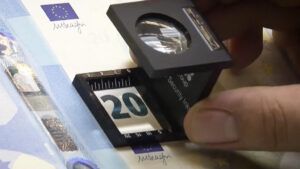The recommendations adopted by the Special Committee on Financial Crimes, Tax Evasion and Tax Avoidance (TAX3) range from overhauling the system for dealing with financial crimes, tax evasion and tax avoidance, notably by thoroughly improving cooperation in all areas between the multitude of authorities involved, to setting up new bodies at the EU and global level.
The numerous findings and recommendations include:
- Commission to immediately work on a proposal for a European financial police force;
- An EU anti-money laundering watchdog should be set up;
- A global tax body should be established within the UN;
- Great concern about member states’ general lack of political will in Council to tackle tax evasion/avoidance and financial crime;
- Seven EU countries (Belgium, Cyprus, Hungary, Ireland, Luxembourg, Malta and The Netherlands) display traits of a tax haven and facilitate aggressive tax planning;
- Golden visas and passports are problematic and should be phased out;
- The cum-ex fraud scheme clearly shows that the complexity of tax systems results in legal loopholes and that multilateral, not bilateral, tax treaties are the way forward;
- Countermeasures should be envisaged against the US if it does not ensure FATCA’s reciprocity;
- The Council should properly assess the situation in Switzerland in order to ensure that no harmful tax regimes are introduced;
- ‘Tax good governance’ clauses should be systematically included in new EU agreements with non-EU countries;
- Whistleblowers and investigative journalists must be much better protected and the US reward system for whistleblowers could be replicated in the EU;
- Malta and Slovakia must do everything they can to identify the instigators behind the murders of two investigative journalists.
The report was adopted with 34 votes to 4 and 3 abstentions. It will now be passed on to the plenary for approval during the second session of March (25 – 28) in Strasbourg (TBC).
Background
Following continued revelations over the last five years (Luxleaks, the Panama Papers, Football leaks and the Paradise papers), the European Parliament decided to establish a Special Committee on Financial Crimes, Tax Evasion and Tax Avoidance (TAX3), on 1 March 2018.
The report adopted today concludes the committee’s year-long mandate, which saw it hold 18 hearings dealing with particular topics of interest, 10 exchange of views with finance ministers and European Commissioners, and four fact-finding missions – to the US, the Isle of Man, Denmark and Estonia, and Latvia.







Leave a Reply